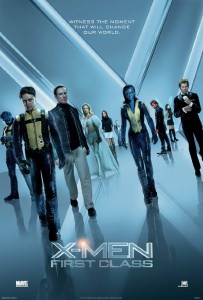Priest was an odd duck of a movie, because it didn’t really try to be anything. There’s this weird alternate reality, see, where humans and vampires have been openly at war for centuries, and despite that the vampires are far stronger and vastly numerous, somehow the sunlight advantage has allowed humans to progress scientifically and spiritually throughout the years, culminating in some kind of religio-genetic hybrid warriors with cross tattoos on their faces who took the war back to the vampires and pretty much won it.
Only now, maybe the war isn’t really over after all, and the church leadership is in denial and considers anyone who wants to investigate the opposing viewpoint to be anathema. So there’s you a great little theme about corrupt religious power, versus reason, versus true faith, probably versus other possibilities as well, only, yeah, once the premise was settled, they went nowhere with it beyond cartoonish antagonism. And there’s a thick, rich Vietnam metaphor in the priests, who everyone can recognize as having been part of this great war that was a stalemate at best, and they no longer have any place in society now that what they were created for is over, and one of them is beset on all sides, by the law, by his past, by threats to his family, and this is the most Rambo-like character I’ve ever seen, only…. again, they did nothing with him. He almost had a sympathetic superior, but not really. He kind of had people to go rescue to prove the war hadn’t ended, but the scope was too narrow.
So, instead of all this potentially rich territory, there was a lot of CGI kung fu, cool explosions, and implausible usage of motorcycles. Oh, and a giant pile of sequel-bait, except all the possibilities for conflict more compelling than “we’d better kill this next dozen vampires” was already ignored and discarded here in what I hope will not be described by future generations as the first movie.
 There’s only one problem with
There’s only one problem with  What’s that, you say? You want to see a really, really weird movie? Let me recommend
What’s that, you say? You want to see a really, really weird movie? Let me recommend 